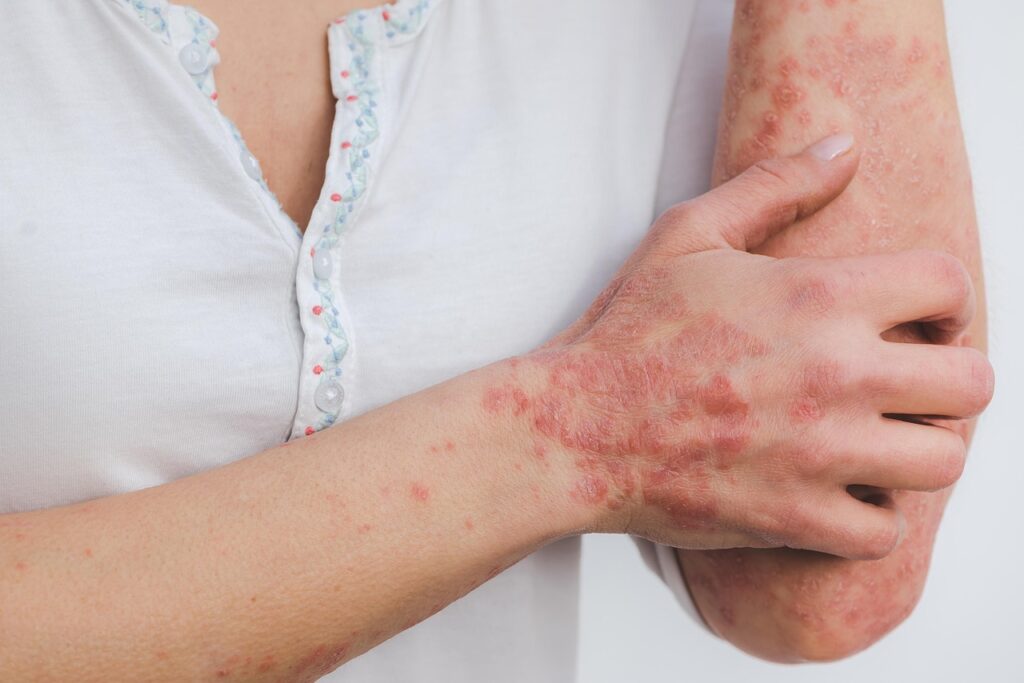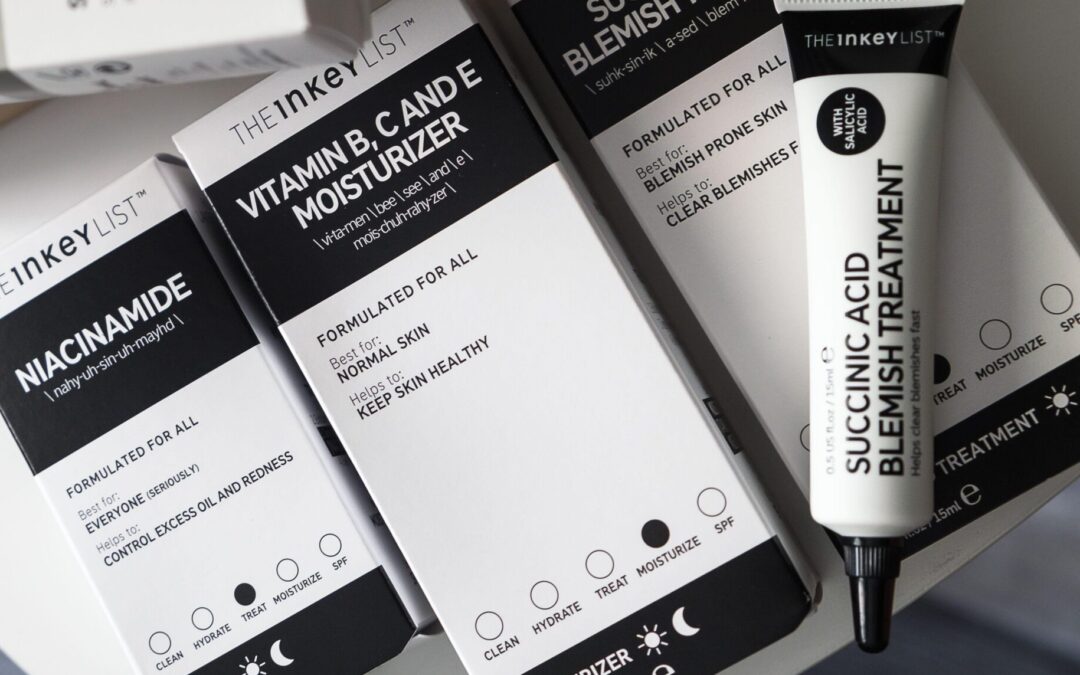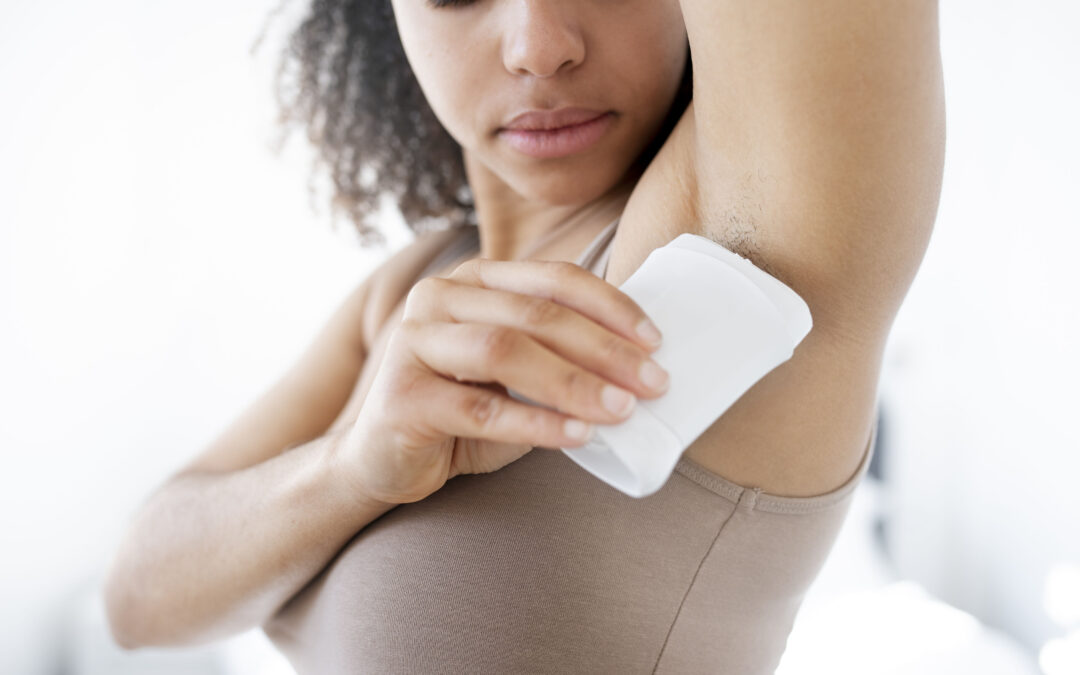Those uncomfortable symptoms have bothered you for a while, may be the signs of deeper skin problems.
You‘ve probably heard of skin conditions like acne, eczema and rosacea, which usually link with redness and bumps. For many people living with these skin conditions, it may affect both skin and mental health, and it’s not a surprise they are urgently looking for a fix. However, the most frustrating thing is that these symptoms come back again and again. So here’s a question for you : have you ever thought about the reason behind these rashes? Please don’t rush to apply any product on your face if you haven’t figured out why you got these rashes!
The immune system works to keep healthy. While skin is the largest organ of the body, it is definitely involved in the immune system. Skin inflammation is one of the automatic immune responses. It does not appear out of nowhere and is usually a reaction of the skin to something it perceives as a threat. This could be external, such as harsh skincare products, allergens or even too much sunlight. Also, it could be internal, like stress, hormonal changes, or even your diet. When your skin barrier is weakened, it’s easier for these triggers to sneak in and cause redness, itchiness, or sensitivity. In short, inflammation is when your skin tries to tell you: “Something’s not right, please slow down and take care of it.”
There are mainly two types of skin inflammation:acute and chronic, and it occurs differently due to the type of inflammation and its causes. Acute inflammation is the immediate immune response after a sudden injury. It usually includes pain, swelling and redness. On the other hand, chronic inflammation is more of a concern because it doesn’t hit the ‘off’ button like acute inflammation does. Over time, it begins to have a negative effect on the body, which can last for months or even years with the most typical symptoms lik persistent redness, dryness and scaling. Therefore, it is easy to be ignored or hard to be recognised as inflammation.

Sometimes, skin inflammation doesn’t occur the way we think it does. We often imagine it as a noticeable rash or bump, but more subtle signs can be ignored.
Read more: Eczema: one of the common skin conditions.
For example, that tight, stretched feeling after washing your face? It might seem harmless, or even like a sign that your skin is squeaky clean. But in reality, it could be your skin’s way of saying it’s been stripped too harshly. Grooming experts from Truefitt & Hill explain that post-cleanse tightness is actually a classic sign of a compromised skin barrier and not something that could be ignored.
That stingy or tingly feeling after using a product? A lot of people think it means the product is working, but it’s often just your skin saying: “Hey, it is a bit too much for me.” According to dermatologists at CeraVe, that burning sensation can be your skin reacting to irritation, and it often means the barrier is already weakened.
Redness, too, is often dismissed as a reaction to weather or just temporary sensitivity. But the NHS points out that lingering or reactive redness can be a symptom of underlying contact dermatitis, especially after contact with fabrics, skincare, or allergens. It is a form of inflammation that’s more common than most realise.
Dryness and flaking can also be covered under the weather. It’s easy to blame them on seasonal changes or a lack of moisturiser, but over-cleansing or using overly aggressive products can also inflame the skin. Byrdie notes that this kind of irritation can lead to peeling and dullness, which are both subtle but important signs.
And then there’s itching. Most of us don’t connect the occasional scratch or tingle with inflammation, but according to Houston Methodist Hospital, persistent itchiness might just be a quiet sign that something’s not right, even without a rash. It can indicate sensitivity or barrier damage, especially when paired with any of the signs above.
So next time your skin feels just not quite right, please don’t rush to cover it up or just ignore it. Skin inflammation isn’t just a problem to fix. The more we learn to recognise these small signs, the better we become at caring for our skin gently, patiently, and with kindness.
Healthy skin is about balance, awareness, and giving your skin what it truly needs, especially when it gives you signals in silence.
Source from:
https://my.clevelandclinic.org/health/symptoms/21660-inflammation
https://www.healthline.com/health/skin-inflammation#symptoms
https://www.truefittandhill.com/blogs/journal/does-your-skin-feel-tight-after-cleansing
https://www.cerave.com/skin-smarts/skincare-tips-advice/face-washing-mistakes-and-solutions
https://www.nhs.uk/conditions/contact-dermatitis/symptoms



